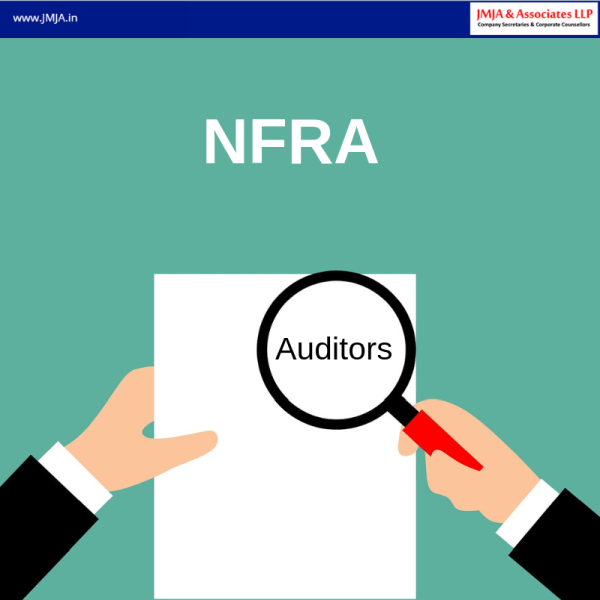Five years after the Companies Act, 2013 provided for the creation of a National Financial Reporting Authority (NFRA), Government has taken steps to implement NFRA.
The rules also mandated that every auditor shall file a return with the Authority on or before 30th April every year in such form as may be specified by the Central Government.
Rules also provide that NFRA shall receive recommendations from the Institute of Chartered Accountants of India (ICAI) on proposals for new accounting standards or auditing standards or for amendments to existing accounting standards or auditing standards. However, it means that the power of ICAI to draft and implement Accounting Standard is now vest with NFRA and ICAI’s role is limited to recommendatory only.
Scope of NFRA:

The Ministry of Corporate Affairs (MCA) vide its notification dated November 13, 2018, has notified rules determining the jurisdiction, function and duties of the NFRA, as also its powers. The Rules also provide for submission of the details of the Auditors in Form NFRA-1 within thirty days from the date of implementation of the rules (Though e-form is still not made available as on November 16, 2018).
The NFRA will regulate accounting and audit standards and quality of service of auditors of:
i. All companies whose securities are listed in India or outside.
ii. Unlisted companies with a paid up capital of not less than Rs 500 crore or an annual turnover of not less than Rs 1,000 crore or outstanding loans, debentures and deposits of not less than Rs 500 crore as on Mar. 31 of immediately preceding financial year.
iii. Insurance companies, banking companies and companies engaged in the generation or supply of electricity
iv. Large offshore subsidiaries and associates of the above companies if their income or net worth exceeds 20 percent of the income or net worth of the parent company.
Key Functions and Duties of NFRA
The NFRA Rules authorize NFRA to protect public interest and the interests of investors, creditors and others associated with companies by
i. Establishing high quality standards of accounting and auditing.
ii. Exercising effective oversight of accounting functions performed by companies and auditing functions performed by auditors.
Monitoring Compliance:
The regulator may review financial statements or seek further information from companies and their auditors in order to enforce compliance with accounting and auditing standards. The Authority shall publish its findings relating to non-compliances on its website and in such other manner as it considers fit, unless it has reasons not to do so in the public interest and it records the reasons in writing.
Powers:
As specified in the Companies Act, the rules provide that the NFRA may direct auditors to take measures to improve audit quality. It has also been given wide powers of investigation including into professional misconduct.
In the case of professional or other misconduct the NFRA has the power to impose a monetary penalty as well as debar an audit member or a firm. While this has been laid down in the law, the rules specify the processes to be followed.
To read Rules, please click on link below:
http://mca.gov.in/Ministry/pdf/NFRARules2018_13112018.pdf
The author is the Founder and Partner at JMJA & Associates LLP. With over 10 years of work experience in various listed companies and conglomerates, he has a rich and varied experience in his portfolio.
Disclaimer: This material and the information contained herein are prepared by JMJA & Associates LLP, Practicing Company Secretaries (JMJA) is intended to provide general information on a particular subject or subjects and is not an exhaustive treatment of such subject(s). None of JMJA, its associate firms, or its members/employees is, by means of this material, rendering professional advice or services. The information is not intended to be relied upon as the sole basis for any decision which may affect you or your business. Before making any decision or taking any action that might affect your personal finances or business, you should consult a qualified professional adviser. JMJA shall not be responsible for any loss whatsoever sustained by any person who relies on this material.









 CAclubindia
CAclubindia
